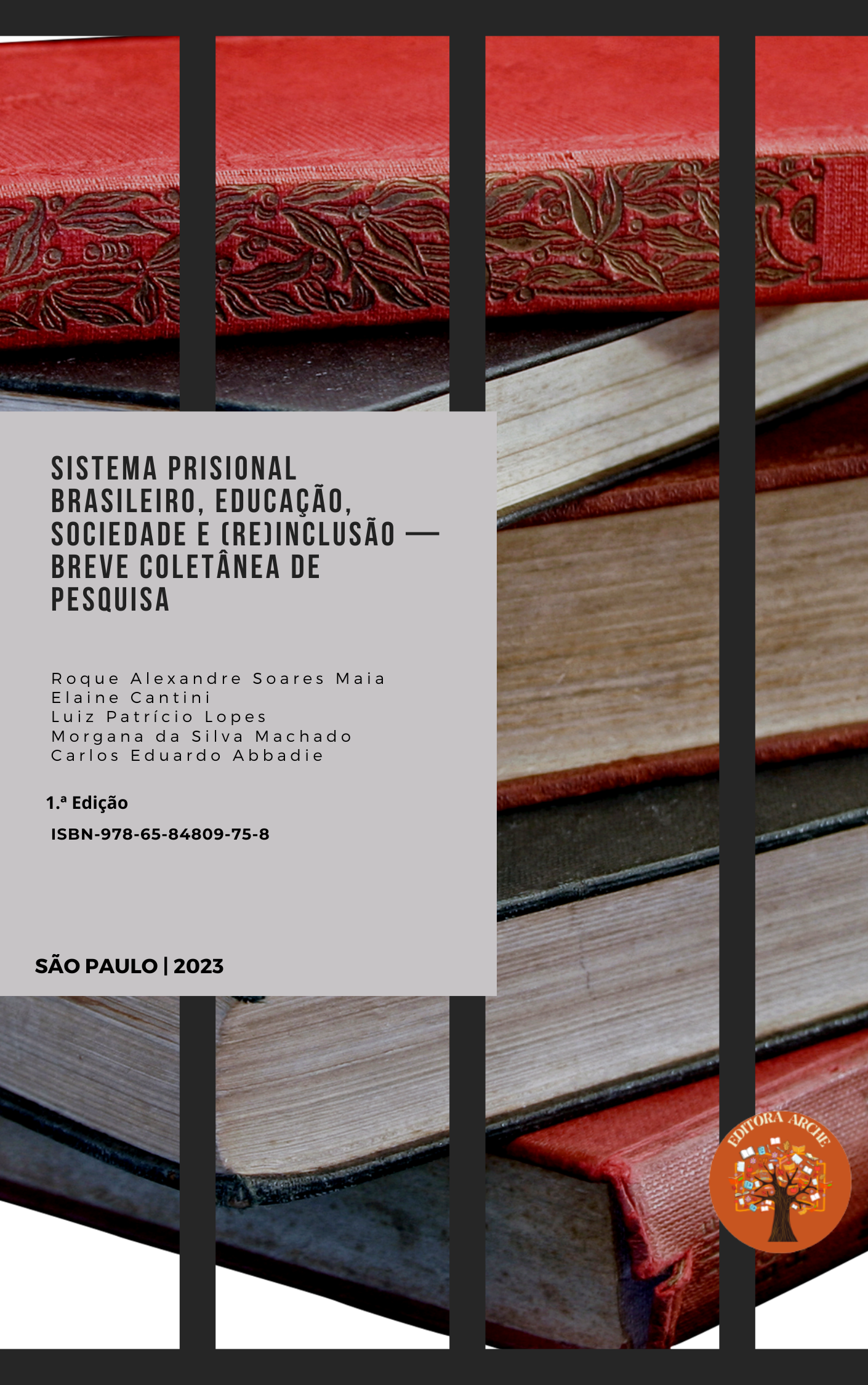BRAZILIAN PRISON SYSTEM, EDUCATION, SOCIETY AND (RE)INCLUSION – BRIEF RESEARCH COLLECTION
Keywords:
Prison system. Social institution. Work. Education. Resocialization. Social development.Abstract
Noble authors,
The Brazilian Prison System is a recurring and highly controversial issue in society. There are many discussions about the lack of humanization and overcrowding in prisons, the lack of opportunities for inmates and the need for greater attention to the reintegration of ex-prisoners into society. The collection in presentation brings important reflections and studies on the prison orb and its intricacies, in addition to bringing education as a path for the resocialization of detainees.
The first article in the collection, entitled, The prison system as a social institution of education and inclusion, is a handout, although this system can be seen beyond its punitive condition. Thus, the prison system must also provide opportunities for education and the reintegration of prisoners into society.
Education within the prison system can be seen as a way to stimulate the intellectual and personal development of inmates, offering them a path to growth and behavior change. Education can include literacy classes, primary and secondary education, technical and vocational courses, and even higher education courses. In addition, education can also offer opportunities for reflection and for the construction of values and principles that can be applied in society.
Social inclusion, on the other hand, refers to the idea that prisoners should be prepared for reintegration into society after serving their sentences. This includes access to education, work and decent life opportunities. Social inclusion can be promoted by public policies aimed at the reintegration of ex-prisoners into society, and also through awareness and solidarity of society as a whole.
Therefore, education and social inclusion in the prison system are fundamental for the process of resocialization of prisoners. By offering opportunities for education and building values and principles, and promoting the social inclusion of ex-prisoners, it is possible to transform the prison system into a social institution of education and inclusion, not just punishment and isolation.
The second article, “Prison system and education as a tool for reinclusion” discusses how education in the prison environment can be offered in different ways, such as, for example, through vocational courses, primary and secondary education, or even University education. The objective is to provide detainees with the opportunity to learn a profession, to acquire new skills and competencies and to reflect on their condition, values and principles, so that they can productively reintegrate into society.
In this way, educational opportunities for inmates are important because they contribute to the reduction of criminal recidivism. According to data from the Ministry of Justice, detainees who attended classes in the prison system have a recidivism rate 30% lower than those who did not have access to education. This is because education enables prisoners to build a new identity, a new perspective on the future and a new vision of themselves and society.
In addition, education can be an instrument for transforming the prison system itself. By providing detainees with access to education, the prison system can contribute to building a culture of respect for human rights and appreciation of human dignity. Education can thus contribute to building a fairer and more humane prison system.
Therefore, education in the prison system is an essential tool for the social reintegration of detainees and for building a more just and humane prison system. Through education, it is possible to offer detainees the opportunity for a new life, and society the possibility of a more just and peaceful coexistence.
Finally, the third manuscript, “The (non)compliance with human rights within the scope of the prison system in view of the configuring requirements of the unconstitutional state of affairs in Brazilian law”, focuses on the discussion around violations of human rights, such as overcrowding , unhealthy conditions, torture, mistreatment, among others. These violations are the result of a number of factors, such as the lack of investment in public security policies and the lack of attention to the rights of prisoners.
In this context, the figure of the "unconstitutional state of affairs" appears, a concept developed by the Inter-American Court of Human Rights and which has been applied in cases of massive and systematic violation of human rights. According to this concept, the violation of human rights can be so widespread and systematic that it becomes a structural situation, that is, a kind of public policy of violation of rights.
In the case of the Brazilian prison system, it is possible to identify the presence of elements that configure a state of affairs
Downloads

Downloads
Published
How to Cite
License
Atribuição CC BY
